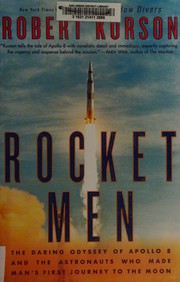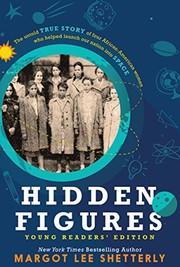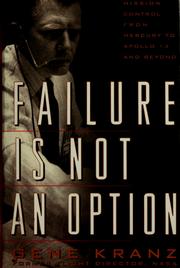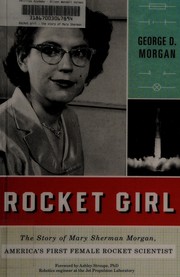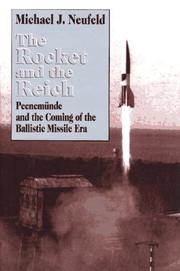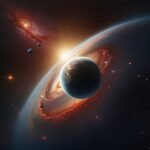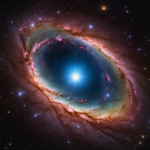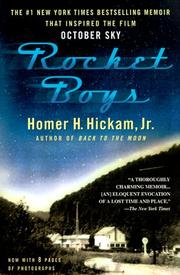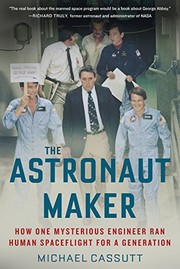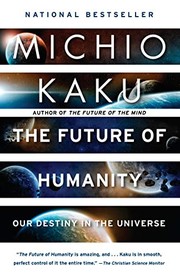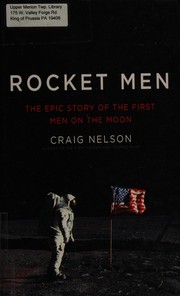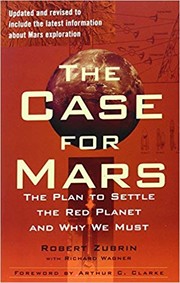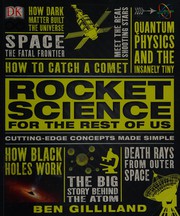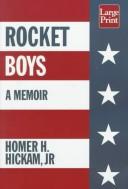If you’re a space enthusiast or just fascinated by the mysteries of the universe, you’ll love diving into the world of rocket science through these 20 captivating books. Whether you’re a beginner looking to grasp the basics or a seasoned expert seeking advanced knowledge, there’s a book on rocket science for every level of interest. From the history of space exploration to the intricacies of propulsion systems and the future of interplanetary travel, these rocket science books will ignite your curiosity and leave you awe-inspired by the wonders of the cosmos.
Contents
- 1 20 Best Rocket Science Books
- 2 Rocket Men: The Daring Odyssey of Apollo 8 and the Astronauts Who Made Man’s First Journey to the Moon
- 3 Ignition!: An Informal History of Liquid Rocket Propellants
- 4 The Right Stuff
- 5 Hidden Figures: The American Dream and the Untold Story of the Black Women Mathematicians Who Helped Win the Space Race
- 6 Failure is Not an Option: Mission Control from Mercury to Apollo 13 and Beyond
- 7 Rocket Girl: The Story of Mary Sherman Morgan, America’s First Female Rocket Scientist
- 8 The Martian
- 9 Spaceport Earth: The Reinvention of Spaceflight
- 10 The Interstellar Age: Inside the Forty-Year Voyager Mission
- 11 The Rocket and the Reich: Peenemünde and the Coming of the Ballistic Missile Era
- 12 Rocket Boys: A Memoir
- 13 The Astronaut Maker: How One Mysterious Engineer Ran Human Spaceflight for a Generation
- 14 The Future of Humanity: Terraforming Mars, Interstellar Travel, Immortality, and Our Destiny Beyond Earth
- 15 Rocket Men: The Epic Story of the First Men on the Moon
- 16 The Apollo Guidance Computer: Architecture and Operation
- 17 The Case for Mars: The Plan to Settle the Red Planet and Why We Must
- 18 Rocket Science for Babies
- 19 Rocket Propulsion Elements
- 20 Rocket Science for the Rest of Us
- 21 Rocket Boys
- 22 Final Thoughts on Best Rocket Science Books
- 23
20 Best Rocket Science Books
Rocket Men: The Daring Odyssey of Apollo 8 and the Astronauts Who Made Man’s First Journey to the Moon
by Robert Kurson
Rocket Men: The Daring Odyssey of Apollo 8 and the Astronauts Who Made Man’s First Journey to the Moon by Robert Kurson is a gripping account of the historic Apollo 8 mission that took humans to the moon for the first time. Kurson delves into the lives of the astronauts, Frank Borman, Jim Lovell, and Bill Anders, and their incredible journey as they ventured into the unknown. The book explores the intense training, the risks involved, and the monumental impact this mission had on the world.
Through meticulous research and interviews with the astronauts themselves, Kurson brings to life the sheer bravery and determination of these men as they embarked on a journey that was not only groundbreaking in terms of space exploration but also a pivotal moment in human history. Rocket Men is a captivating and immersive read that will appeal to anyone with an interest in space exploration, history, or the human spirit of adventure. It’s a must-read for anyone fascinated by the wonders of space and the incredible feats of human ingenuity.
Ignition!: An Informal History of Liquid Rocket Propellants
by John D. Clark
Ignition! An Informal History of Liquid Rocket Propellants, written by John D. Clark, is a fascinating book on rocket science that takes readers on a captivating journey through the history of liquid rocket propellants. With a mix of scientific expertise and engaging storytelling, Clark delves into the complexities and challenges of developing rocket propellants, from the early experiments to the modern-day advancements.
Readers will be enthralled by the anecdotes and insights into the innovative minds behind the evolution of rocket science. Clark’s writing style is accessible and entertaining, making this book about rocket science a must-read for anyone interested in the history of space exploration and propulsion technology.
Whether you’re a seasoned enthusiast or a newcomer to the world of rocket science, Ignition! offers a compelling and informative look at the trials and triumphs of propellant development. It’s a rocket science book that will leave you with a newfound appreciation for the ingenuity and determination of those who paved the way for space exploration.
The Right Stuff
by Tom Wolfe
The Right Stuff by Tom Wolfe is a captivating non-fiction book about the early days of the space race and the pioneering test pilots and astronauts who risked their lives to push the boundaries of human exploration. This thrilling account delves into the world of aviation and the intense competition among the fearless men who sought to conquer the skies and beyond. With vivid and immersive storytelling, Wolfe takes readers on a journey through the adrenaline-fueled world of test flights, high-speed aircraft, and the relentless pursuit of the “right stuff” that separates the exceptional from the rest.
Through meticulous research and engaging prose, Wolfe provides a fascinating glimpse into the lives of these extraordinary individuals, capturing the drama, courage, and determination that defined the early days of the space program. With its blend of adventure, history, and human spirit, The Right Stuff is a must-read for anyone interested in the thrilling world of aviation and space exploration. This book on rocket science is sure to leave readers inspired and in awe of the incredible achievements of these trailblazing pioneers.
Hidden Figures: The American Dream and the Untold Story of the Black Women Mathematicians Who Helped Win the Space Race
by Margot Lee Shetterly
Hidden Figures: The American Dream and the Untold Story of the Black Women Mathematicians Who Helped Win the Space Race by Margot Lee Shetterly is a captivating non-fiction book about the remarkable contributions of black female mathematicians to the field of rocket science. Shetterly delves into the lives of these brilliant women, shedding light on their invaluable work at NASA during the Space Race.
The book provides a compelling account of the challenges these women faced due to racial and gender discrimination, as well as their resilience and determination to succeed in a male-dominated and racially segregated industry. Shetterly’s storytelling brings to life the untold stories of these unsung heroes, highlighting their pivotal role in the success of crucial space missions.
Hidden Figures is a fascinating and inspiring read, offering a fresh perspective on the history of rocket science and the individuals who played a pivotal role in its advancement. Shetterly’s meticulous research and engaging narrative make this book a must-read for anyone interested in the history of space exploration and the remarkable achievements of these trailblazing women.
Failure is Not an Option: Mission Control from Mercury to Apollo 13 and Beyond
by Gene Kranz
Failure is Not an Option: Mission Control from Mercury to Apollo 13 and Beyond by Gene Kranz is a captivating memoir that takes readers on a thrilling journey through the early days of space exploration. Kranz, a legendary flight director for NASA, offers a firsthand account of the triumphs and challenges faced by the men and women behind the scenes of some of the most iconic space missions in history.
This gripping book on rocket science provides a behind-the-scenes look at the intense pressure and high-stakes decision-making that characterized the Mercury, Gemini, and Apollo programs. Kranz’s narrative is filled with suspense, as he recounts the tense moments of the Apollo 13 mission and the incredible teamwork and ingenuity that saved the astronauts. His storytelling is both exhilarating and educational, offering readers a deeper understanding of the complexities of space exploration.
Whether you’re a space enthusiast or simply fascinated by the intricacies of rocket science, this book about rocket science is a must-read. Kranz’s vivid storytelling and valuable insights make Failure is Not an Option a compelling and enlightening read for anyone interested in the history of space exploration.
Rocket Girl: The Story of Mary Sherman Morgan, America’s First Female Rocket Scientist
by George D. Morgan
Rocket Girl: The Story of Mary Sherman Morgan, America’s First Female Rocket Scientist by George D. Morgan is a captivating biography that delves into the fascinating world of rocket science. This book chronicles the remarkable life and achievements of Mary Sherman Morgan, a trailblazing woman who overcame numerous obstacles to become a pioneering figure in the field of rocketry.
Readers will be enthralled by the gripping narrative that follows Mary’s journey from her humble beginnings to her groundbreaking work at North American Aviation, where she played a pivotal role in the development of the first American satellite. George D. Morgan skillfully weaves together historical context, personal anecdotes, and scientific explanations to paint a rich portrait of Mary’s contributions to the world of rocket science.
Rocket Girl is a must-read for anyone interested in the history of space exploration, women in STEM, or simply a compelling story of perseverance and achievement. This rocket science book is sure to inspire and enlighten readers with its engaging storytelling and insightful exploration of a remarkable woman’s legacy in the field of rocketry.
The Martian
by Andy Weir
The Martian by Andy Weir is an electrifying and suspenseful book about rocket science. It follows the gripping story of astronaut Mark Watney, who is stranded on Mars after a fierce dust storm forces his crew to evacuate the planet, believing him to be dead. Mark is left to fend for himself on the desolate and unforgiving planet, using his ingenuity and knowledge of rocket science to survive. The novel takes readers on an exhilarating journey as Mark battles the harsh Martian environment, scarcity of resources, and the relentless isolation. Weir’s attention to detail and scientific accuracy make this rocket science book a thrilling and educational read, as Mark uses his engineering skills to overcome one obstacle after another. The Martian is a true testament to the human spirit and determination, as Mark refuses to give up on life, despite the overwhelming odds stacked against him. This rocket science book is a must-read for anyone who loves a heart-pounding adventure set in the vastness of space.
Spaceport Earth: The Reinvention of Spaceflight
by Joe Pappalardo
Spaceport Earth: The Reinvention of Spaceflight by Joe Pappalardo is a captivating and insightful book on rocket science that explores the modern era of space travel. Pappalardo takes readers on a journey through the rapidly evolving landscape of spaceflight, highlighting the innovative technologies, ambitious entrepreneurs, and pioneering companies that are revolutionizing the industry.
The book delves into the new space race, the rise of private space companies, and the potential for space tourism. Pappalardo’s engaging writing style and in-depth research provide a comprehensive understanding of the challenges and opportunities in the field of space exploration. He also examines the impact of spaceports on Earth, discussing their significance in the future of space travel and their potential to transform our relationship with the cosmos.
Spaceport Earth is a must-read for anyone interested in the latest developments in space travel and the exciting possibilities that lie ahead. Pappalardo’s expertise and passion for the subject shine through, making this rocket science book an informative and compelling read.
The Interstellar Age: Inside the Forty-Year Voyager Mission
by Jim Bell
The Interstellar Age: Inside the Forty-Year Voyager Mission by Jim Bell is a fascinating exploration of the renowned Voyager mission, offering an in-depth look at the incredible journey of the two spacecraft as they ventured into the outer reaches of our solar system. This captivating book on rocket science takes readers on a journey through the history of the Voyager mission, from its conception to the remarkable discoveries it has made over the past four decades.
Jim Bell provides a compelling account of the science, engineering, and human ingenuity behind the Voyager mission, shedding light on the challenges and triumphs of this groundbreaking endeavor. Through vivid storytelling and stunning imagery, Bell offers readers a glimpse into the awe-inspiring world of space exploration, making complex scientific concepts accessible and engaging.
Whether you’re a space enthusiast, a science buff, or simply curious about the mysteries of the universe, The Interstellar Age is a must-read rocket science book that will leave you inspired and filled with a sense of wonder about the vast cosmos that surrounds us.
The Rocket and the Reich: Peenemünde and the Coming of the Ballistic Missile Era
by Michael J. Neufeld
The Rocket and the Reich: Peenemünde and the Coming of the Ballistic Missile Era is a captivating exploration of the history of rocket science and its impact on the world. Michael J. Neufeld takes readers on a journey through the development of rocket technology in Nazi Germany, focusing on the secret military research facility at Peenemünde. The book delves into the lives of the scientists and engineers who worked on the V-2 rocket, shedding light on their motivations and the ethical dilemmas they faced. Neufeld also examines the broader implications of the V-2 rocket, discussing its influence on the Cold War and the space race. This book about rocket science offers a fascinating look at the intersection of technology, politics, and warfare, and how it shaped the modern world. With meticulous research and engaging storytelling, Neufeld provides a comprehensive account of the birth of the ballistic missile era, making it a must-read for anyone interested in the history of rocketry and its impact on society.
Rocket Boys: A Memoir
by Homer H. Hickam Jr.
Rocket Boys: A Memoir by Homer H. Hickam Jr. is an enthralling coming-of-age story that follows the author’s journey from a small mining town in West Virginia to becoming a NASA engineer. The book is a captivating blend of adventure, determination, and the pursuit of one’s dreams.
Set against the backdrop of the 1950s and the space race, Rocket Boys is a captivating memoir that explores the author’s passion for rocketry and his relentless pursuit of knowledge in the field of aerospace engineering. Hickam’s vivid storytelling and heartfelt narrative immerse readers in the world of rocket science, inspiring them to reach for the stars.
Through his experiences, Hickam shares valuable insights into the challenges and triumphs of pursuing a career in rocket science, making this memoir a must-read for anyone interested in the subject. Rocket Boys offers a compelling glimpse into the world of space exploration and the determination it takes to turn dreams into reality.
The Astronaut Maker: How One Mysterious Engineer Ran Human Spaceflight for a Generation
by Michael Cassutt
The Astronaut Maker by Michael Cassutt is a captivating book about rocket science that delves into the life and work of the enigmatic engineer, George W.S. Abbey. Known as the “dark genius of the universe,” Abbey played a pivotal role in shaping human spaceflight for over a generation. Cassutt takes readers on a fascinating journey through Abbey’s career, from his early days at NASA to his influential role in the Apollo program and beyond.
Readers will be enthralled by the behind-the-scenes look at the challenges and triumphs of the space race, as well as Abbey’s complex relationships with astronauts, politicians, and fellow engineers. The rocket science book offers a compelling blend of history, biography, and technological innovation, making it a must-read for space enthusiasts and history buffs alike. Cassutt’s masterful storytelling and meticulous research bring Abbey’s story to life, shedding light on the man who quietly shaped the course of human space exploration for decades.
The Future of Humanity: Terraforming Mars, Interstellar Travel, Immortality, and Our Destiny Beyond Earth
by Michio Kaku
The Future of Humanity by Michio Kaku is a fascinating exploration of the possibilities that lie beyond our planet. This thought-provoking book delves into the realms of terraforming Mars, interstellar travel, immortality, and our destiny beyond Earth. With his expertise in theoretical physics, Kaku presents a compelling vision of a future where humanity becomes a spacefaring civilization, colonizing other planets and even reaching for the stars.
Through Kaku’s engaging storytelling and scientific insights, readers are taken on a journey through the potential advancements in technology and space exploration that could make such a future a reality. This rocket science book provides a captivating look at the challenges and opportunities that await us as we venture out into the cosmos, pushing the boundaries of what is possible for humanity.
Whether you’re a space enthusiast, a science buff, or simply curious about the future of our species, The Future of Humanity offers a thrilling and enlightening glimpse into the possibilities that await us beyond Earth.
Rocket Men: The Epic Story of the First Men on the Moon
by Craig Nelson
Rocket Men: The Epic Story of the First Men on the Moon by Craig Nelson is a captivating account of the Apollo 11 mission that landed the first humans on the moon. Nelson delves into the gripping tale of the astronauts, Neil Armstrong, Buzz Aldrin, and Michael Collins, as they embark on a perilous journey to the lunar surface.
This thrilling book on rocket science takes readers on a breathtaking ride through the technical challenges, political pressures, and personal sacrifices that culminated in this historic achievement. Nelson’s vivid storytelling and meticulous research provide a rich tapestry of the human drama and scientific triumph that defined the space race and the Apollo program.
With meticulous attention to detail, Rocket Men offers a comprehensive look at the complexities of space exploration and the remarkable courage of the individuals who made it possible. Whether you’re a space enthusiast or simply curious about humanity’s foray into the cosmos, this rocket science book is a must-read for anyone seeking to understand the monumental feat of the first moon landing.
The Apollo Guidance Computer: Architecture and Operation
by Frank O’Brien
The Apollo Guidance Computer: Architecture and Operation by Frank O’Brien is a fascinating and in-depth exploration of the groundbreaking technology that powered the Apollo moon missions. This book on rocket science delves into the intricate design and operation of the Apollo Guidance Computer, shedding light on the engineering marvel that played a crucial role in navigating the spacecraft to the moon and back.
Readers will be captivated by O’Brien’s detailed explanations of the computer’s architecture, its innovative use of integrated circuits, and the challenges faced by the engineers who developed this pioneering technology. Through O’Brien’s expert analysis, readers will gain a deep understanding of the complexities of space navigation and the pivotal role that the Apollo Guidance Computer played in the success of the moon missions.
Whether you’re a technology enthusiast, a history buff, or simply curious about the inner workings of space exploration, this rocket science book is sure to enlighten and inspire. The Apollo Guidance Computer: Architecture and Operation is a must-read for anyone intrigued by the intersection of technology and space exploration.
The Case for Mars: The Plan to Settle the Red Planet and Why We Must
by Robert Zubrin
The Case for Mars: The Plan to Settle the Red Planet and Why We Must, written by Robert Zubrin, is a captivating book on rocket science that presents a compelling argument for the exploration and colonization of Mars. Zubrin, a renowned aerospace engineer, outlines a detailed plan for how humans can travel to and establish a sustainable presence on the red planet. The book delves into the technical and logistical challenges of such a monumental undertaking, while also addressing the ethical and philosophical reasons why we should strive to become a multi-planetary species.
With a combination of scientific expertise and visionary thinking, Zubrin makes a compelling case for the importance of Mars exploration, drawing on the potential benefits for humanity and the advancement of science and technology. The Case for Mars is a thought-provoking and accessible book about rocket science that will inspire readers to consider the possibilities of interplanetary travel and the future of space exploration.
Rocket Science for Babies
by Chris Ferrie
Rocket Science for Babies by Chris Ferrie is an engaging and accessible introduction to the complex world of space travel. This board book is designed to introduce the youngest learners to the fundamental concepts of rocket science in a way that is both entertaining and educational. Through simple language and colorful illustrations, the book covers topics such as propulsion, orbits, and the mechanics of space travel. The use of everyday examples and familiar objects helps to make these complex ideas relatable and easy to understand for young readers.
With its charming illustrations and straightforward explanations, Rocket Science for Babies is the perfect way to introduce little ones to the wonders of space exploration. This book about rocket science is a great addition to any child’s library and is sure to spark curiosity and a love for learning about the mysteries of the universe.
Rocket Propulsion Elements
by George P. Sutton
Rocket Propulsion Elements by George P. Sutton is a comprehensive and authoritative book on rocket science. This classic text provides a detailed exploration of the principles and practices of rocket propulsion, making it an essential resource for students, engineers, and enthusiasts of space exploration.
The book covers a wide range of topics, including the history of rocketry, fundamental principles of rocket propulsion, rocket performance, and the design and operation of various types of rocket engines. With its clear explanations and in-depth analysis, Rocket Propulsion Elements offers a valuable insight into the complex field of rocket science.
Readers can expect to gain a thorough understanding of the underlying physics and engineering behind rocket propulsion, as well as practical insights into the challenges and opportunities of designing and building rockets. Whether you are a seasoned professional or a curious beginner, this book about rocket science is sure to ignite your passion for space exploration and inspire your journey into the fascinating world of rocket propulsion.
Rocket Science for the Rest of Us
by Ben Gilliland
Rocket Science for the Rest of Us is an engaging and accessible book on rocket science written by Ben Gilliland. The book takes readers on a journey through the fascinating world of rocket science, breaking down complex concepts into easy-to-understand explanations. Gilliland’s witty and relatable writing style makes this book about rocket science a joy to read, even for those who may not have a background in science.
Readers will learn about the history of rocketry, the principles of rocket propulsion, and the technology behind modern space exploration. Gilliland also delves into the practical applications of rocket science, from satellite technology to space tourism, giving readers a comprehensive understanding of the impact of rocket science on our world.
Whether you’re a space enthusiast or simply curious about the wonders of the universe, Rocket Science for the Rest of Us is a must-read. This rocket science book will leave you with a newfound appreciation for the incredible achievements and potential of space exploration.
Rocket Boys
by Homer H. Hickam Jr.
Rocket Boys, by Homer H. Hickam Jr., is a captivating memoir that takes readers on a journey into the world of rocketry and the triumphs of the human spirit. Set in the 1950s in a small coal-mining town in West Virginia, the book follows the author’s teenage years as he and his friends become obsessed with building and launching rockets. Despite facing numerous challenges and setbacks, including disapproval from their families and the limitations of their resources, the boys persevere in their quest to explore the skies.
As a coming-of-age story, Rocket Boys is filled with themes of friendship, determination, and the pursuit of dreams. Hickam’s vivid storytelling and heartfelt narrative bring to life the excitement and wonder of scientific discovery, making this a must-read for anyone interested in the world of rocketry or simply looking for an inspiring tale of overcoming obstacles. This book about rocket science is a testament to the power of curiosity and the human desire to reach for the stars.
Final Thoughts on Best Rocket Science Books
Exploring the 20 best books about Rocket Science has been an exhilarating journey through the depths of space exploration. From detailed technical manuals to captivating narratives, these books offer a comprehensive understanding of the science behind rockets. Whether you’re an enthusiast or a professional in the field, these books are sure to inspire and educate. Dive into the world of rocket science and expand your knowledge with these must-read books.
Which book about Rocket Science is best?
The best book on Rocket Science can vary with personal preference, but three widely recommended titles are:
- Rocket Men: The Daring Odyssey of Apollo 8 and the Astronauts Who Made Man’s First Journey to the Moon by Robert Kurson,
- Ignition!: An Informal History of Liquid Rocket Propellants by John D. Clark,
- The Right Stuff by Tom Wolfe.
Each offers valuable insights and could be a great starting point.
What are the best books to learn about Rocket Science?
For those looking to learn about Rocket Science, there is a wealth of literature that can provide a comprehensive understanding of the subject. Some of the most highly recommended books include:
- Rocket Men: The Daring Odyssey of Apollo 8 and the Astronauts Who Made Man’s First Journey to the Moon by Robert Kurson,
- Ignition!: An Informal History of Liquid Rocket Propellants by John D. Clark,
- The Right Stuff by Tom Wolfe,
- Hidden Figures: The American Dream and the Untold Story of the Black Women Mathematicians Who Helped Win the Space Race by Margot Lee Shetterly,
- Failure is Not an Option: Mission Control from Mercury to Apollo 13 and Beyond by Gene Kranz,
- Rocket Girl: The Story of Mary Sherman Morgan, America’s First Female Rocket Scientist by George D. Morgan,
- The Martian by Andy Weir,
- Spaceport Earth: The Reinvention of Spaceflight by Joe Pappalardo,
- The Interstellar Age: Inside the Forty-Year Voyager Mission by Jim Bell,
- The Rocket and the Reich: Peenemünde and the Coming of the Ballistic Missile Era by Michael J. Neufeld
These books offer a range of perspectives on Rocket Science, covering various aspects and approaches to the subject.
What are the best books about Rocket Science?
The best books about Rocket Science are:
- Rocket Men: The Daring Odyssey of Apollo 8 and the Astronauts Who Made Man’s First Journey to the Moon by Robert Kurson,
- Ignition!: An Informal History of Liquid Rocket Propellants by John D. Clark,
- Rocket Boys: A Memoir by Homer H. Hickam Jr.,
- The Astronaut Maker: How One Mysterious Engineer Ran Human Spaceflight for a Generation by Michael Cassutt,
- Spaceport Earth: The Reinvention of Spaceflight by Joe Pappalardo,
- Rocket Girl: The Story of Mary Sherman Morgan, America’s First Female Rocket Scientist by George D. Morgan.
Each offers unique insights into the subject. While these books about Rocket Science are highly regarded, it’s important to note that any list of ‘best’ books is subjective and reflects a range of opinions.
What are the best Rocket Science books of all time?
Choosing the best Rocket Science books of all time can vary depending on who you ask, but five titles that are often celebrated include
- Rocket Men: The Daring Odyssey of Apollo 8 and the Astronauts Who Made Man’s First Journey to the Moon by Robert Kurson,
- Ignition!: An Informal History of Liquid Rocket Propellants by John D. Clark,
- Failure is Not an Option: Mission Control from Mercury to Apollo 13 and Beyond by Gene Kranz,
- Spaceport Earth: The Reinvention of Spaceflight by Joe Pappalardo,
- and Rocket Boys: A Memoir by Homer H. Hickam Jr..
Each of these books has made a significant impact in the field of Rocket Science and continues to be influential today.

